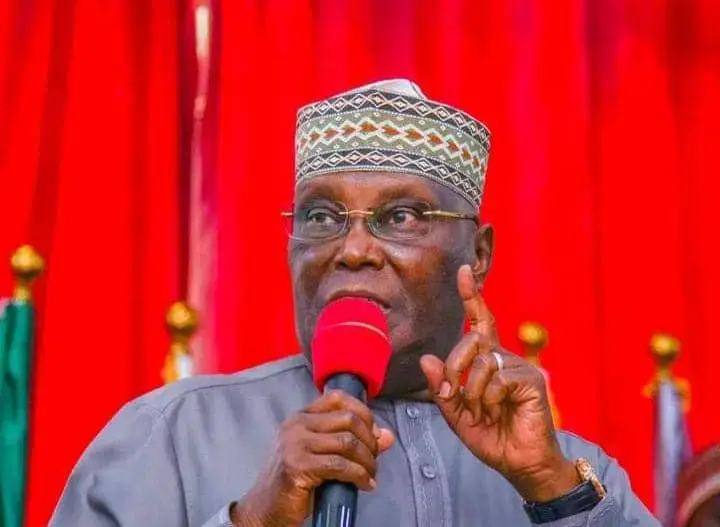A presidential election unlike any other in U.S. history enters its last full day on Monday.
This is as Donald Trump, Kamala Harris, and their campaigns scramble to get supporters to the polls in a contest each portrays as an existential moment for America.
Even after the astonishing blur of events the last few months, the electorate is divided down the middle, in the seven battleground states expected to decide the winner on Tuesday.
Athena closeness of the contest means it could take days for a winner to emerge.
Trump, a 78-year-old Republican, survived two assassination attempts, one by millimeters, just weeks after a jury in New York – the city whose tabloids first elevated him to national fame and notoriety – made him the first former U.S. president to be convicted of a felony.
Harris, 60, was catapulted to the top of the Democratic ticket in July – giving her a chance to become the first woman to hold the world’s most powerful job.
This was after President Joe Biden, 81, had a disastrous debate performance and three weeks later dropped his reelection bid under pressure from his party.
For all of that turmoil, the contours of the race have changed little. Polls show Harris and Trump running neck and neck nationally and in the battleground states.
More than 77 million voters have already cast ballots, but the next two days will provide a critical test of whether Vice President Harris’ or former President Trump’s campaign does the better job of driving supporters to the polls.
Voters, both Democrats and Republicans, have broken century-old records in the last two presidential elections, a sign of the passion that Trump stirs in both political parties.
In the final days of this campaign, both sides are flooding social media sites and TV and radio stations with a last round of ad campaigns, and racing to knock on doors and make calls.
Harris’ campaign team believes the sheer size of its voter mobilisation efforts is making a difference and says its volunteers knocked on hundreds of thousands of doors in each of the battleground states this weekend.
“We are feeling very good about where we are right now,” campaign chair Jen O’Malley Dillon told reporters.
The campaign says its internal data shows that undecided voters are breaking in their favour, particularly women in the battleground states.
The campaign says they see an increase in early voting among core parts of their coalition, including young voters and voters of colour.
Trump’s campaign has its own in-house canvassing operation but has effectively outsourced most of the work to outside super PACs, allied political groups that can raise and spend unlimited sums of money.
They have been more focused on contacting “low propensity” voters, or voters that often do not go to the polls, instead of appealing to middle-of-the-road voters who can flip to either side.
Many in this category are Trump supporters, but they are not normally reliable voters.
By cherry-picking the voters, they want to contact, Trump and his team say they are sending door knockers to places where it makes a difference and being smart about spending.
Trump and his allies, who falsely claim that his 2020 defeat was the result of fraud, have spent months laying the groundwork to again challenge the result if he loses.
He has promised “retribution,” spoken of prosecuting his political rivals and described Democrats as the ‘”enemy within.”
On Sunday, Trump complained about gaps in the bullet-proof glass surrounding him as he spoke at a rally and mused that an assassin would have to shoot through the news media to get him, adding, “I don’t mind that so much.”
Harris has cast Trump as a danger to democracy but sounded optimistic at a Detroit church on Sunday.
“As I travel, I see Americans from so-called red states to so-called blue states who are ready to bend the arc of history toward justice,” Harris said.
“And the great thing about living in a democracy, as long as we can hold on to it, is that we have the power, each of us, to answer that question.”
Voters responding to a late-October Reuters/Ipsos poll ranked threats to democracy as the second-biggest problem facing the U.S. today, just behind the economy.
Trump believes concerns about the economy and high prices, especially for food and rent, will carry him to the White House.
“We’re going to cut your taxes, end inflation, slash your prices, raise your wages and bring thousands of factories back to America,” Trump said on Sunday at a midday rally in Lititz, Pennsylvania.
His final day of campaigning on Monday will include stops in three of the seven battleground states expected to determine the winner.
He will visit Raleigh, North Carolina; Reading and Pittsburgh in Pennsylvania, and Grand Rapids, Michigan.
He then plans to return to Palm Beach, Florida, to vote and await election results.
Harris plans to spend Monday campaigning in Pennsylvania, starting her day in Allentown, one of the most competitive parts of the state, before heading on to Pittsburgh and Philadelphia.
Pennsylvania is the biggest prize among the battleground states, offering 19 of the 270 Electoral College votes a candidate needs to win the presidency.
Nonpartisan U.S. election analysts calculate Harris needs to win about 45 electoral votes in the seven swing states to win the White House, while Trump would need about 51, when accounting for the states they are forecast to win easily. (Reuters/NAN)










